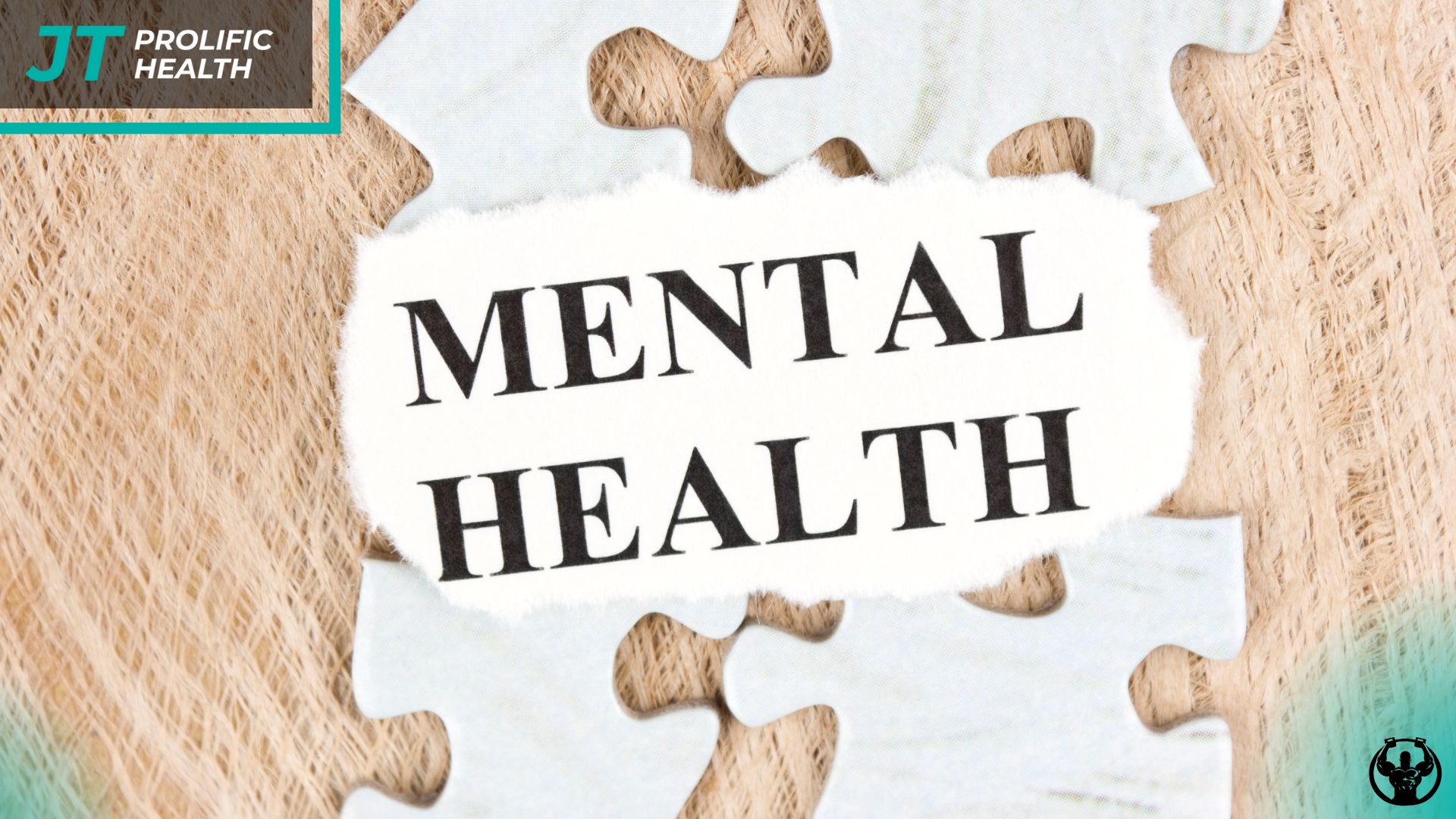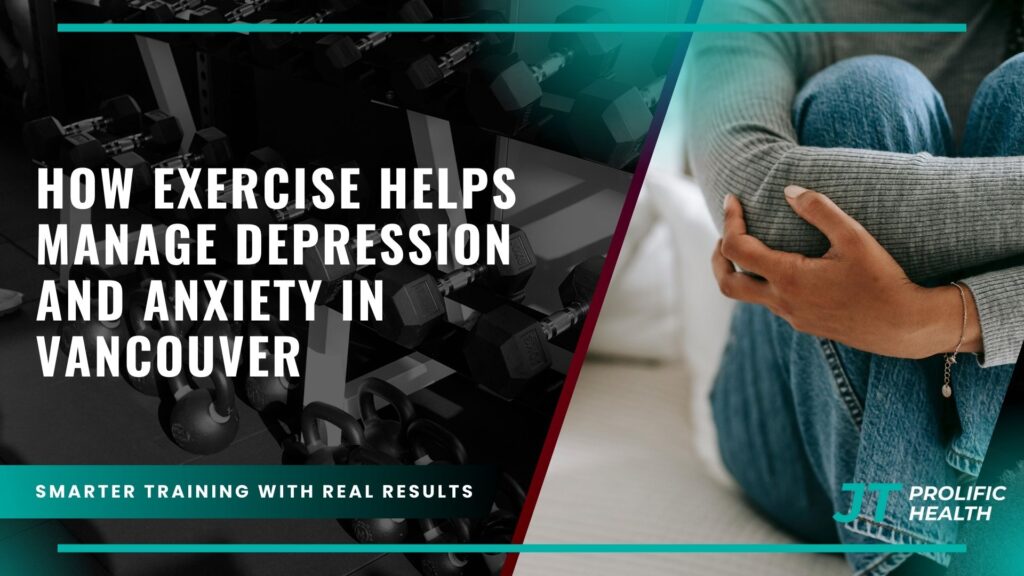Mental health challenges like depression and anxiety affect millions of Canadians, with Vancouver residents facing unique stressors from urban living, seasonal weather changes, and the pressures of modern life. While traditional treatments like therapy and medication remain important, mounting scientific evidence reveals that exercise serves as a powerful, natural intervention for managing these conditions. Understanding how physical activity impacts mental health can transform your approach to wellness and provide you with practical tools for better emotional regulation.
The relationship between exercise and mental health isn’t just about feeling good after a workout – it’s rooted in complex neurobiological processes that fundamentally alter brain chemistry. When you engage in physical activity, your body releases endorphins, often called “feel-good” hormones, which naturally elevate mood and reduce pain perception. Additionally, exercise stimulates the production of neurotransmitters like serotonin, dopamine, and norepinephrine, which play crucial roles in regulating mood, motivation, and anxiety levels.
Vancouver’s unique environment offers both challenges and opportunities for using exercise as a mental health tool. The city’s frequent rainfall and shorter winter days can contribute to seasonal affective patterns, making it even more important to establish consistent exercise routines. However, Vancouver’s stunning natural landscape, extensive park system, and year-round outdoor activity options provide unparalleled opportunities for therapeutic movement. From the seawall to mountain trails, residents have access to diverse exercise environments that can enhance the mental health benefits of physical activity.
Research consistently demonstrates that regular exercise can be as effective as medication for treating mild to moderate depression and anxiety. A landmark study published in the Journal of Clinical Psychiatry found that structured exercise programs produced remission rates comparable to antidepressant medications. This doesn’t mean exercise should replace professional treatment, but rather that it represents a valuable component of comprehensive mental health care. For Vancouver residents dealing with depression and anxiety, incorporating strategic exercise into daily routines can provide both immediate relief and long-term resilience.
Key Takeaways
- Neurochemical Benefits: Exercise triggers the release of endorphins, serotonin, and BDNF (brain-derived neurotrophic factor), which directly combat depression and anxiety symptoms while promoting neuroplasticity and brain health.
- Immediate and Long-term Effects: While acute exercise sessions can provide immediate mood improvements lasting 2-4 hours, consistent exercise over 4-6 weeks creates lasting changes in brain structure and function that support sustained mental health improvements.
- Optimal Exercise Parameters: Research suggests 150 minutes of moderate-intensity exercise or 75 minutes of vigorous exercise weekly, with sessions lasting 30-45 minutes, provide maximum mental health benefits for depression and anxiety management.
- Vancouver-Specific Advantages: The city’s diverse outdoor environments, from ocean to mountains, offer unique opportunities for combining exercise with nature exposure, which amplifies mental health benefits through reduced cortisol levels and improved stress resilience.
- Social Connection Component: Group fitness activities and team sports available throughout Vancouver provide dual benefits of physical activity and social support, both crucial for managing depression and anxiety symptoms.
- Seasonal Considerations: Vancouver’s climate requires year-round exercise strategies, with indoor alternatives during rainy months and maximizing outdoor exposure during sunny periods to combat seasonal mood variations.
- Professional Guidance Value: Working with qualified fitness professionals helps ensure proper exercise prescription, progression, and adherence, maximizing mental health outcomes while preventing injury or burnout.
Understanding the Science Behind Exercise and Mental Health

The connection between physical activity and mental wellness operates through multiple biological pathways that work synergistically to improve mood and reduce anxiety. When you exercise, your brain undergoes immediate chemical changes that create both short-term relief and long-term adaptations. The most well-known mechanism involves endorphin release, but this represents just one piece of a complex neurobiological puzzle that makes exercise such an effective mental health intervention.
Brain-derived neurotrophic factor (BDNF) plays a particularly crucial role in exercise’s antidepressant effects. Often called “Miracle-Gro for the brain,” BDNF promotes the growth of new neural connections and protects existing neurons from damage. Depression and chronic stress typically reduce BDNF levels, contributing to the brain shrinkage observed in these conditions. Exercise dramatically increases BDNF production, essentially reversing some of the neurological damage associated with mental health disorders while building resilience against future episodes.
The inflammatory response also connects exercise to improved mental health outcomes. Depression and anxiety often involve chronic low-grade inflammation, which exercise helps regulate through multiple mechanisms. Regular physical activity reduces pro-inflammatory markers like C-reactive protein and interleukin-6 while increasing anti-inflammatory substances. This shift in inflammatory balance directly impacts mood regulation and stress response, providing a biological explanation for why consistent exercisers often report better emotional stability.
Vancouver residents can leverage these scientific insights by understanding that different types of exercise may trigger varying neurobiological responses. Aerobic activities like running or cycling primarily boost endorphin and BDNF production, while resistance training enhances confidence and body image through strength gains. Mind-body exercises like yoga combine physical movement with mindfulness practices, addressing both the physiological and psychological components of depression and anxiety. For those seeking expert guidance on exercise selection, understanding these mechanisms helps inform more targeted and effective workout strategies.
Immediate Mental Health Benefits of Physical Activity


The acute effects of exercise on mood and anxiety can be felt within minutes of starting physical activity, making it one of the most accessible immediate interventions for mental health symptoms. This rapid response occurs because exercise quickly activates the sympathetic nervous system, followed by a rebound activation of the parasympathetic system that promotes relaxation and calm. Understanding these immediate benefits helps Vancouver residents use exercise strategically during particularly challenging moments or high-stress periods.
Research demonstrates that even a single 20-minute exercise session can reduce anxiety levels by 20-30% for up to four hours afterward. This effect, known as “anxiolysis,” occurs regardless of fitness level, meaning beginners can experience these benefits immediately. The key lies in reaching moderate intensity – approximately 60-70% of maximum heart rate – which triggers optimal neurotransmitter release without creating additional physical stress that might exacerbate anxiety symptoms.
The immediate mood-lifting effects of exercise often surprise people experiencing depression, who may have lost hope in their ability to feel better quickly. Within 10-15 minutes of starting moderate exercise, most individuals report improved mood, increased energy, and enhanced mental clarity. These effects stem from rapid increases in dopamine and norepinephrine, neurotransmitters that depression typically depletes. For Vancouver residents dealing with seasonal mood changes, this immediate response can be particularly valuable during long, dark winter months.
Stress relief represents another immediate benefit that Vancouver’s urban dwellers particularly appreciate. Exercise provides a healthy outlet for the physical tension that accumulates from work pressure, traffic, and daily responsibilities. The rhythmic nature of activities like walking, swimming, or cycling activates the relaxation response, while more intense activities like boxing or sprinting allow for the physical release of frustration and anger in a controlled, productive manner.
The cognitive benefits of acute exercise sessions also support mental health by improving focus, decision-making, and problem-solving abilities. Many people find that their most creative insights or solutions to personal challenges emerge during or immediately after exercise. This cognitive enhancement occurs because physical activity increases blood flow to the prefrontal cortex, the brain region responsible for executive function and emotional regulation. Those interested in developing proper exercise techniques can maximize these immediate benefits through structured, progressive training approaches.
Long-term Mental Health Adaptations from Regular Exercise


While immediate exercise benefits provide valuable relief, the long-term adaptations from consistent physical activity create profound, lasting changes in mental health and emotional resilience. These adaptations typically emerge after 4-8 weeks of regular exercise and represent fundamental shifts in brain structure, function, and stress response systems. Understanding these long-term benefits helps Vancouver residents maintain motivation during challenging periods when establishing new exercise habits.
Neuroplasticity – the brain’s ability to reorganize and form new neural connections – represents one of the most significant long-term benefits of regular exercise. Consistent physical activity literally reshapes the brain, increasing gray matter volume in regions associated with mood regulation, memory, and executive function. The hippocampus, often smaller in individuals with depression, shows particular growth in response to regular aerobic exercise. This structural change correlates with improved memory, learning ability, and emotional regulation.
The stress response system undergoes remarkable adaptations with regular exercise training. Initially, exercise represents a form of controlled stress that activates the hypothalamic-pituitary-adrenal (HPA) axis. Over time, this repeated activation strengthens the system’s efficiency and recovery capacity, making individuals more resilient to psychological stressors. Vancouver residents who maintain consistent exercise routines often report feeling less overwhelmed by work pressures, relationship challenges, and daily hassles that previously triggered significant anxiety or depressive episodes.
Sleep quality improvements represent another crucial long-term adaptation that supports mental health. Regular exercisers typically experience deeper, more restorative sleep patterns, which directly impact mood regulation, stress tolerance, and cognitive function. Exercise helps regulate circadian rhythms, particularly important for Vancouver residents dealing with seasonal light variations. The physical fatigue from exercise also promotes natural sleep onset, while the stress-reducing effects help quiet the racing thoughts that often interfere with rest.
Self-efficacy and confidence building through exercise achievements create powerful psychological adaptations that extend far beyond physical fitness. As individuals progress in their exercise capabilities – whether running longer distances, lifting heavier weights, or mastering new movement patterns – they develop a stronger sense of personal agency and capability. This enhanced self-efficacy often generalizes to other life areas, helping people approach challenges with greater confidence and persistence. For those seeking professional strength training guidance, these psychological adaptations can be particularly pronounced when working with experienced trainers who understand the mental health benefits of progressive exercise programming.
Optimal Exercise Types for Depression and Anxiety Management
Different forms of exercise provide varying benefits for depression and anxiety, making it important to understand which activities might be most effective for specific mental health goals. Research indicates that while any physical activity can provide mental health benefits, certain exercise modalities demonstrate particular effectiveness for mood disorders. Vancouver’s diverse fitness landscape offers access to virtually every type of beneficial exercise, from traditional gym workouts to outdoor adventures that combine physical activity with nature exposure.
Aerobic exercise consistently shows the strongest evidence for treating depression and anxiety disorders. Activities like running, cycling, swimming, and brisk walking increase heart rate and breathing, triggering robust endorphin and neurotransmitter responses. The rhythmic, repetitive nature of aerobic exercise also promotes a meditative state that can quiet anxious thoughts and rumination. Vancouver’s extensive seawall system provides ideal opportunities for aerobic exercise, offering scenic routes that enhance the mood-boosting effects through nature exposure and vitamin D synthesis during sunny periods.
Resistance training offers unique benefits for mental health through its emphasis on progressive overload and measurable achievements. The process of gradually increasing weights or repetitions provides concrete evidence of improvement, which can be particularly valuable for individuals with depression who struggle with feelings of helplessness or worthlessness. Strength training also promotes better body image and self-confidence while providing an outlet for aggressive or frustrated feelings in a controlled, productive manner. The focused concentration required during resistance exercises can also serve as a form of moving meditation that interrupts negative thought patterns.
Mind-body exercises like yoga, tai chi, and qigong combine physical movement with mindfulness practices, addressing both the physical and psychological components of anxiety and depression. These activities emphasize breath control, present-moment awareness, and gentle movement that can be particularly appealing to individuals who find high-intensity exercise overwhelming. Vancouver’s numerous yoga studios and parks offering outdoor classes provide accessible options for incorporating these practices into mental health management strategies.
High-intensity interval training (HIIT) has emerged as particularly effective for anxiety management due to its ability to simulate and help individuals adapt to stress responses. The controlled exposure to intense physical stress followed by recovery periods teaches the nervous system to activate and then calm down efficiently. This training effect often translates to better stress management in daily life situations. However, individuals with severe anxiety should approach HIIT gradually and potentially under professional supervision to avoid triggering panic responses.
Team sports and group fitness activities provide the dual benefits of physical exercise and social connection, both crucial for mental health. The social support, accountability, and sense of belonging that come from group activities can be particularly valuable for individuals with depression who tend toward isolation. Vancouver’s recreational leagues, hiking groups, and fitness classes offer numerous opportunities to combine exercise with community building, creating sustainable support networks that extend beyond the gym or playing field.
Creating an Effective Exercise Routine for Mental Health
Developing a sustainable exercise routine for mental health requires careful consideration of individual preferences, current fitness level, lifestyle constraints, and specific mental health goals. Unlike exercise for purely physical outcomes, mental health-focused routines must balance effectiveness with accessibility and enjoyment to ensure long-term adherence. Vancouver residents have unique advantages in routine development, including year-round outdoor options and extensive indoor facilities for weather-dependent backup plans.
The frequency and duration of exercise sessions significantly impact mental health outcomes, with research suggesting that consistency matters more than intensity for sustained benefits. The recommended minimum of 150 minutes of moderate-intensity exercise weekly can be broken down in various ways – three 50-minute sessions, five 30-minute sessions, or even daily 20-minute walks with longer sessions twice weekly. For mental health purposes, more frequent, shorter sessions often prove more beneficial than infrequent, lengthy workouts because they provide regular mood boosts and stress relief opportunities.
Timing considerations play a crucial role in maximizing mental health benefits from exercise. Morning workouts can help establish positive momentum for the day and regulate circadian rhythms, particularly beneficial for individuals with depression who struggle with morning motivation. Evening exercise can serve as a transition from work stress to relaxation, though intense evening workouts may interfere with sleep for some individuals. Vancouver’s variable daylight hours throughout the year make timing flexibility important, with winter routines potentially emphasizing morning light exposure and summer routines taking advantage of extended daylight.
Progressive overload principles apply to mental health exercise routines, but the progression focuses on building confidence and habit formation rather than just physical performance. Starting with easily achievable goals – perhaps 10-15 minute walks or basic bodyweight exercises – allows individuals to experience success and build momentum. Gradual increases in duration, intensity, or complexity help maintain motivation while preventing the overwhelm that can derail mental health-focused exercise programs.
Environmental considerations significantly impact routine sustainability and effectiveness. Vancouver’s outdoor options provide natural mood enhancement through nature exposure, but backup indoor plans ensure consistency during poor weather. Home workout capabilities, gym memberships, or community center access should align with individual preferences and practical constraints. Some people thrive in social gym environments, while others prefer solitary outdoor activities or home-based routines.
Tracking and monitoring progress for mental health-focused exercise differs from traditional fitness tracking. While physical metrics like distance or weight lifted remain relevant, mental health tracking should include mood ratings, energy levels, sleep quality, and stress perception. Many Vancouver residents find that combining fitness apps with mood tracking applications provides comprehensive insights into how exercise impacts their mental well-being. For those seeking professional guidance in routine development, working with trainers who understand mental health applications can provide valuable expertise in finding qualified professionals who can design programs specifically targeting mental health goals.
Prolific Health: Supporting Vancouver’s Mental Wellness Through Exercise
Prolific Health recognizes the profound connection between physical activity and mental wellness, offering specialized programs designed to support Vancouver residents in using exercise as a tool for managing depression and anxiety. Our approach goes beyond traditional fitness training to incorporate evidence-based strategies that specifically target mental health outcomes while building physical strength and endurance. Understanding that mental health challenges require sensitive, individualized approaches, our certified trainers receive specialized education in working with clients who are using exercise as part of their mental health management strategy.
Our comprehensive assessment process evaluates not only physical fitness levels but also mental health goals, stress patterns, and lifestyle factors that impact both exercise adherence and mental wellness. This holistic approach allows us to design programs that address the unique challenges Vancouver residents face, from seasonal mood variations to urban stress factors. We recognize that individuals dealing with depression or anxiety may have different energy levels, motivation patterns, and physical capabilities on different days, so our programs build in flexibility while maintaining the consistency needed for mental health benefits.
The Prolific Health team includes trainers with specialized certifications in mental health and exercise, ensuring that our clients receive expert guidance in maximizing the mood and anxiety benefits of physical activity. We understand the neurobiological mechanisms behind exercise’s mental health effects and use this knowledge to optimize workout timing, intensity, and progression for each individual’s specific needs. Our trainers are also trained to recognize signs when clients might need additional mental health support beyond exercise and can provide appropriate referrals to mental health professionals when necessary.
Located conveniently in the Vancouver area, Prolific Health offers both indoor training facilities and outdoor program options that take advantage of the region’s natural beauty. We believe that combining exercise with nature exposure enhances mental health benefits, so many of our programs incorporate outdoor elements when weather and client preferences allow. Our indoor facilities provide a supportive, non-intimidating environment where individuals can focus on their mental health goals without the anxiety that some people experience in traditional gym settings.
Frequently Asked Questions
How quickly can I expect to see mental health improvements from exercise?
Most people experience immediate mood improvements within 20-30 minutes of starting exercise, with effects lasting 2-4 hours. However, sustained improvements in depression and anxiety symptoms typically require 4-6 weeks of consistent exercise. The key is maintaining regular activity rather than expecting dramatic changes from sporadic intense workouts.
What’s the minimum amount of exercise needed for mental health benefits?
Research suggests that even 15-20 minutes of moderate exercise three times per week can provide measurable mental health benefits. However, the standard recommendation of 150 minutes of moderate-intensity exercise weekly provides optimal results for most people dealing with depression and anxiety.
Can exercise replace therapy or medication for depression and anxiety?
While exercise can be as effective as medication for mild to moderate depression, it should complement rather than replace professional mental health treatment. Exercise works best as part of a comprehensive approach that may include therapy, medication, and lifestyle modifications, depending on individual needs and symptom severity.
What should I do if I feel too depressed or anxious to exercise?
Start with the smallest possible step – even a 5-minute walk around the block or gentle stretching at home. The goal is movement, not performance. Many people find that once they start moving, they feel capable of doing slightly more. Having a workout buddy or trainer can provide crucial accountability and support during low-motivation periods.
Are there specific exercises that work better for anxiety versus depression?
Aerobic exercises like running or cycling tend to be particularly effective for depression due to their strong endorphin response. For anxiety, activities that promote mindfulness like yoga or tai chi can be especially helpful, though any regular exercise provides benefits for both conditions. The best exercise is one you’ll do consistently.
How does Vancouver’s weather affect exercise for mental health?
Vancouver’s rainy seasons can challenge outdoor exercise routines, making indoor alternatives important. However, exercising outdoors during any available sunlight can provide additional mood benefits through vitamin D synthesis and circadian rhythm regulation. Having both indoor and outdoor exercise options ensures year-round consistency.
Should I exercise when I’m having a particularly bad mental health day?
Gentle movement is almost always beneficial, even on difficult days. However, the type and intensity should match your current capacity. On very low days, a short walk or gentle stretching might be more appropriate than an intense workout. Listen to your body and adjust accordingly, but try to maintain some form of movement.
How can I stay motivated to exercise when dealing with depression?
Focus on how exercise makes you feel rather than performance goals. Keep an exercise and mood journal to track the connection between activity and mental state. Start with activities you genuinely enjoy, exercise with others for accountability, and celebrate small victories. Remember that motivation often follows action rather than preceding it.
Conclusion
The evidence overwhelmingly demonstrates that exercise serves as a powerful, accessible tool for managing depression and anxiety, offering both immediate relief and long-term mental health improvements. For Vancouver residents, the city’s unique combination of urban amenities and natural beauty provides exceptional opportunities to incorporate therapeutic physical activity into daily life. Whether taking advantage of the seawall for morning runs, joining group fitness classes during rainy months, or exploring mountain trails on weekends, the options for mental health-supporting exercise are virtually limitless.
The key to success lies in understanding that exercise for mental health differs from exercise for purely physical goals. Consistency trumps intensity, enjoyment ensures sustainability, and flexibility accommodates the variable nature of mental health symptoms. Starting small, building gradually, and focusing on how movement makes you feel rather than performance metrics creates a foundation for long-term success. The neurobiological changes that occur with regular exercise – from increased BDNF production to improved stress response systems – provide lasting protection against future mental health episodes while enhancing overall quality of life.
As you embark on or continue your journey of using exercise to support mental wellness, remember that seeking professional guidance can significantly enhance your success. Whether working with qualified trainers who understand mental health applications or collaborating with healthcare providers to integrate exercise into comprehensive treatment plans, expert support maximizes benefits while ensuring safety and sustainability. Vancouver’s mental health and fitness communities offer extensive resources for individuals committed to improving their mental wellness through physical activity, creating a supportive environment for lasting positive change.




